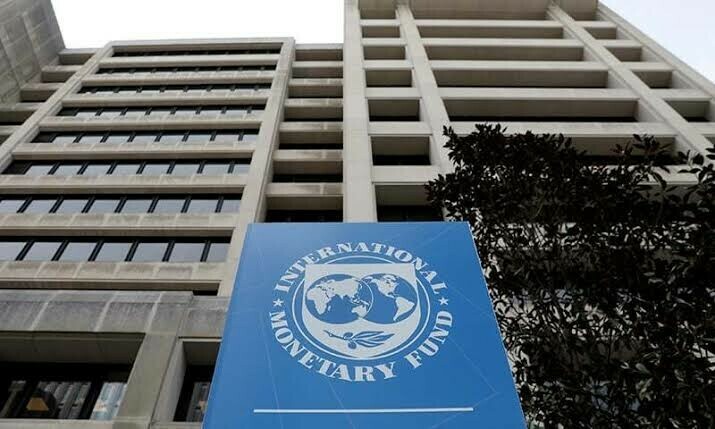
[ad_1]

ISLAMABAD: To meet a deadline set by the International Monetary Fund, the Ministry of Finance has directed all state-owned enterprises (SOEs) to adopt standard regulations and reporting manuals for their operational protocols, business plans, board appointments and financial audits to minimise fiscal risks for the state.
The ministry’s Central Monitoring Unit (CMU) issued directives on Oct 31, the IMF-mandated deadline, instructing all ministries and divisions to ensure that state-owned enterprises under their domain comply with the SOEs (Governance and Operations) Act 2023 and the SOEs Ownership and Management Policy 2023.
Under these requirements, the CMU has issued ‘Business Plan and Statement of Corporate Intent (SCI) Guidelines’ to federal SOEs regarding key steps and essential components of their business plans, strategic objectives, performing environmental analysis and framework for effective monitoring and evaluation.
As per another directive, the SOEs have to meet ‘Public Sector Obligations (PSOs) Costing Guidelines’ and methodologies in estimating and managing the financial needs of fulfilling PSOs, with particular emphasis on activity-based, standard and marginal costing approaches.
Finance ministry directs all state-owned firms to adopt standard regulations, reporting manuals
All SOEs have been given standard ‘Regulations on Audit Committee, Risk Management and Internal Controls’ to ensure effective governance, transparency and accountability. The audit committees would be bound to implement a robust risk management framework and maintain adequate internal controls to mitigate operational, financial and compliance risks.
The CMU has also issued ‘Directors Appointment and Evaluation Guidelines’ for SOEs, under which the ministries and divisions are required to ensure transparent and effective appointment, induction and evaluation of the board of directors.
Under the $7 billion Extended Fund Facility (EFF) approved by the IMF’s executive board in the last week of September, the government had given a written commitment to the adoption by the 15 largest commercial SOEs by asset size of business plans and publication of statements of corporate intent (SCI) by the end of October. The first quarterly review of the Fund’s programme is due in a couple of weeks, dates for which are currently under discussions between the IMF and Pakistan authorities.
The government had promised to issue these four operational manuals to provide guidance on the implementation of the PSO framework; development of business plans and SCIs; governance, including SOE director selection, appointment and performance reviews; and how CMU will undertake its monitoring functions and reporting, in line with requirements under the SOE Policy, by end-October.
The government has also given an undertaking for adoption and publication by the 15 largest commercial SOEs by assets of externally audited, International Financial Reporting Standards (IFRS)-compliant financial statements and annual reports for FY24 by the end of December. By this date, it will also ensure that boards of all commercial SOEs have a majority of independent directors, as mandated by Section 12(2) of the SOE Act.
Further commitments include identifying, costing and contracting PSOs in the seven commercial SOEs with the largest government claims, with PSO agreements to be in place by end-June 2025, in accordance with the SOE Act (Schedule II) and SOE Policy.
The SOEs’ boards would be required to constitute audit committees led by an independent member and comprising others with financial expertise, but this committee would not have the chairman of the board or chief executive of the company as its members.
These committees will review interim financial results before board approval and conduct meetings with external auditors in the absence of the chief financial officer and chief internal auditor. Separate meetings with internal auditors are also required.
The government is required under the IMF programme to complete the development of an electronic database so that the CMU can fully meet its reporting requirements under Section 31 of the SOE Act by the end of June 2025.
To that end, the Ministry of Finance will include SOEs’ performance against FY24 financial and non-financial benchmarks in the December 2024 report.
According to the Fund, SOE reforms are key to reducing losses, improving services and scaling back the role of the state.
Many SOEs provide poor-quality services and make large losses, absorbing more than 8pc of GDP in direct budget support (cumulative since 2016), it said.
The IMF and the Ministry of Finance also signed a structural benchmark for amending the 2023 Sovereign Wealth Fund (SWF) Act by the end of December 2024 to ensure that SOEs under the ownership of the wealth fund revert to the SOE Act’s governance structures.
About $8bn worth of companies — Oil and Gas Development Company Ltd, Government Holdings Pvt Ltd, Pakistan Petroleum Limited, National Bank of Pakistan, Mari Petroleum Co Ltd, Pakistan Development Fund Ltd and Neelum-Jhelum Hydropower Ltd — are included in the Sovereign Wealth Fund.
Published in Dawn, November 4th, 2024
[ad_2]
Source link






